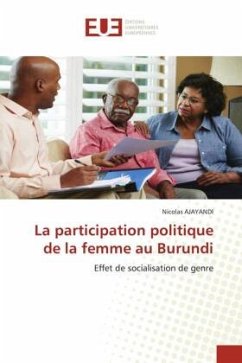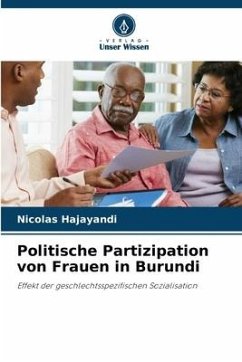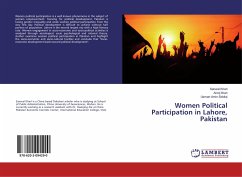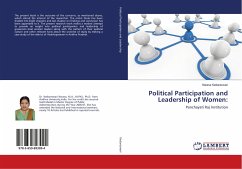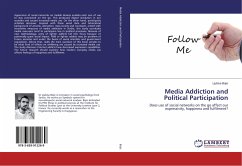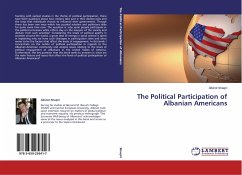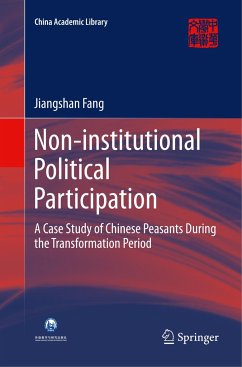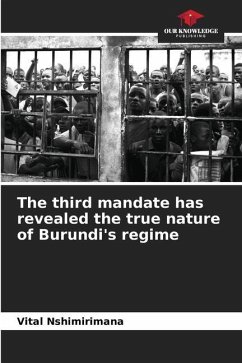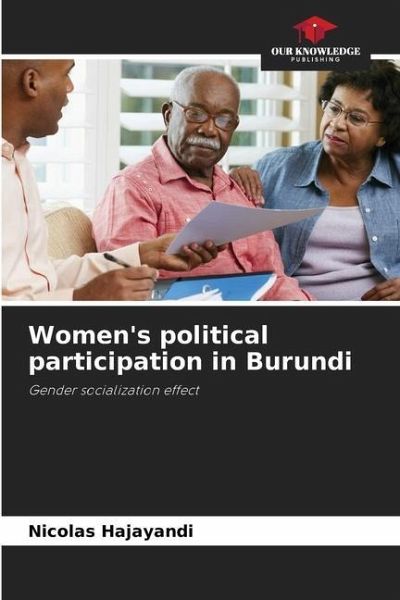
Women's political participation in Burundi
Gender socialization effect
Versandkostenfrei!
Versandfertig in 6-10 Tagen
29,99 €
inkl. MwSt.

PAYBACK Punkte
15 °P sammeln!
Women's political participation has been a privileged subject of study since they acquired their citizenship and are committed to playing an active role in the life of their country. This citizenship is guaranteed by a set of regulations that recognize equal rights regardless of gender. This article seeks to understand the level of women's political participation in Burundi. It starts from the hypothesis that gender socialization has a significant effect on women's political participation in Burundi.Drawing on the extensive literature on the notions of political participation and socialization...
Women's political participation has been a privileged subject of study since they acquired their citizenship and are committed to playing an active role in the life of their country. This citizenship is guaranteed by a set of regulations that recognize equal rights regardless of gender. This article seeks to understand the level of women's political participation in Burundi. It starts from the hypothesis that gender socialization has a significant effect on women's political participation in Burundi.Drawing on the extensive literature on the notions of political participation and socialization, this article focuses on both data and empirical materials collected from about thirty women who are more or less politically active.The data collected show that women's political participation in Burundi remains marked by gender relations that are constantly reproduced by socialization bodies. This gender socialization acts as a brake, despite the institutional mechanisms that promote women's political participation.



